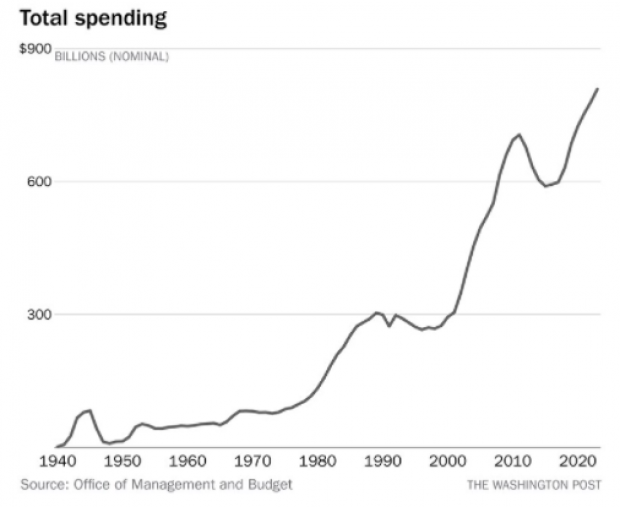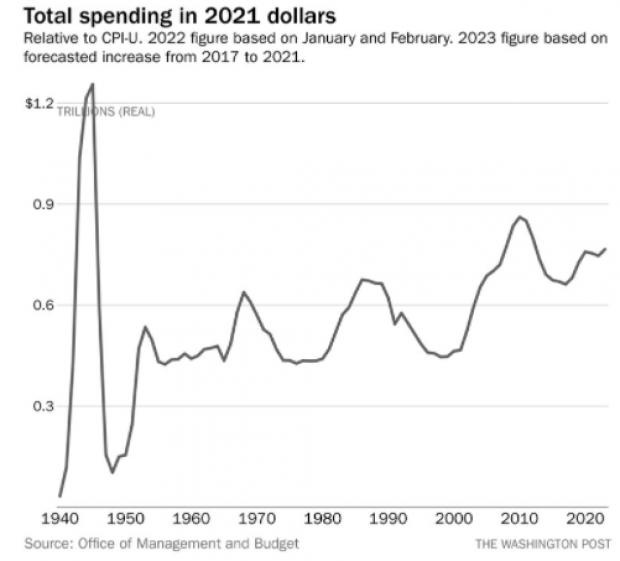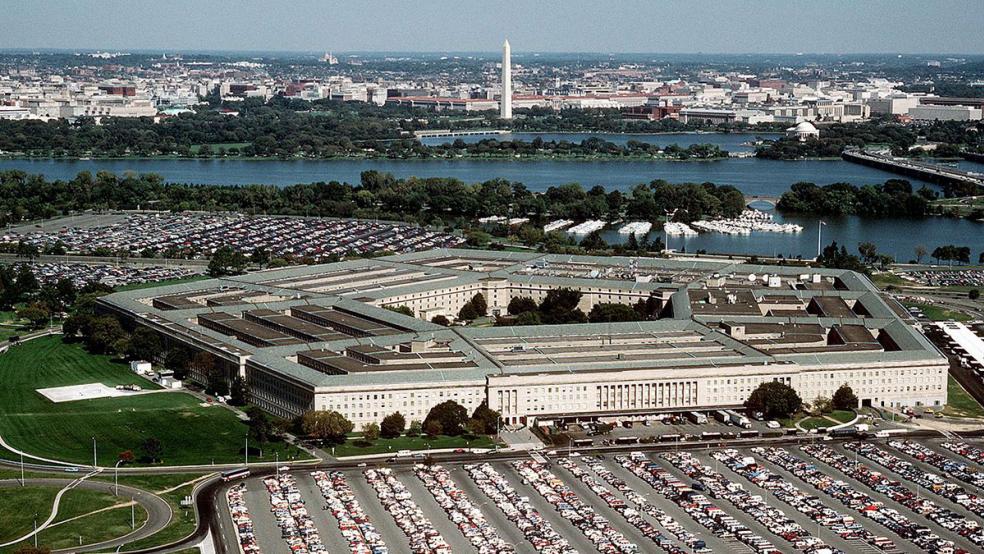The White House last week requested a defense budget for fiscal year 2023 that would be the largest in history, at least in nominal terms. That request, as Politico’s Connor O’Brien reports, poses a dilemma for Biden’s fellow Democrats: whether to “back President Joe Biden’s historically high Pentagon budget or spend even more.”
Many Democrats had hoped — or are still hoping — to cut defense spending once Biden took office. O’Brien explains that circumstances have dashed those hopes. “[T]he new reality, spurred on by high inflation and a raging land war in Europe, means that Democrats for the second year in a row are looking at rebuffing their own president and adding tens of billions of dollars to the Defense Department’s budget that the agency didn’t ask for,” he writes.
Biden asked for $813.3 billion in national defense spending, including $773 billion for the Pentagon. The overall total would represent an increase of $31.2 billion, or 4%, over 2022 levels.
Yet even before Biden released his budget request, Republicans were already calling for more, with key GOP lawmakers pressing for a 5% increase above the rate of inflation. “Biden’s budget once again cuts the size of our military in the heart of a national security crisis,” Rep. Elise Stefanik (R-NY), the third-ranking House Republican, complained misleadingly in a statement released Monday by the House Armed Services Republicans.
Most other Republican complaints about Biden’s defense budget have been more careful to specify that it’s only a cut in inflation-adjusted terms. The Washington Post’s Philip Bump on Tuesday provided a useful visualization of how inflation affects the defense budget picture.
Here’s defense spending since 1940 in nominal terms:

And here’s the same spending adjusted for inflation, using 2021 dollars and estimates of full-year inflation rates for this year and next.

A real concern? “Concern about the spending power of the money allocated to defense began late last month, in part as a function of a report from McKinsey & Company that showed how different rates of inflation would affect that pool of budgeted money,” Bump reports. “If Biden’s budget increases spending less than inflation, then the military can buy less than it could in prior years.”
Some Democrats appear ready to go along with the GOP’s push for a larger increase. “At this point, I think we need a 5 percent real increase in the budget and I think that our ultimate goal should be to get to 5 percent of GDP, or [approximately] $1 trillion,” Rep. Elaine Luria (D-VA), a member of the Armed Services Committee, told Politico. “That is what it is going to take to modernize the nuclear enterprise … and to make a serious investment in our shipbuilding and actually be serious about deterring Chinese aggression against Taiwan.”
Rep. John Yarmuth (D-TN), chair of the House Budget Committee, told Politico that the war in Ukraine means there will be less resistance among Democrats this year to an increase in defense spending — though there may still be some pushback over delivering the Pentagon more money than it sought. “I don’t think anybody wants to go higher,” Yarmuth said.
The bottom line: Given the war in Ukraine, high inflation and the considerable leverage Republicans will have over the budget process in a narrowly divided Congress, lawmakers appear poised to once again provide a larger defense budget boost than Biden requested.





